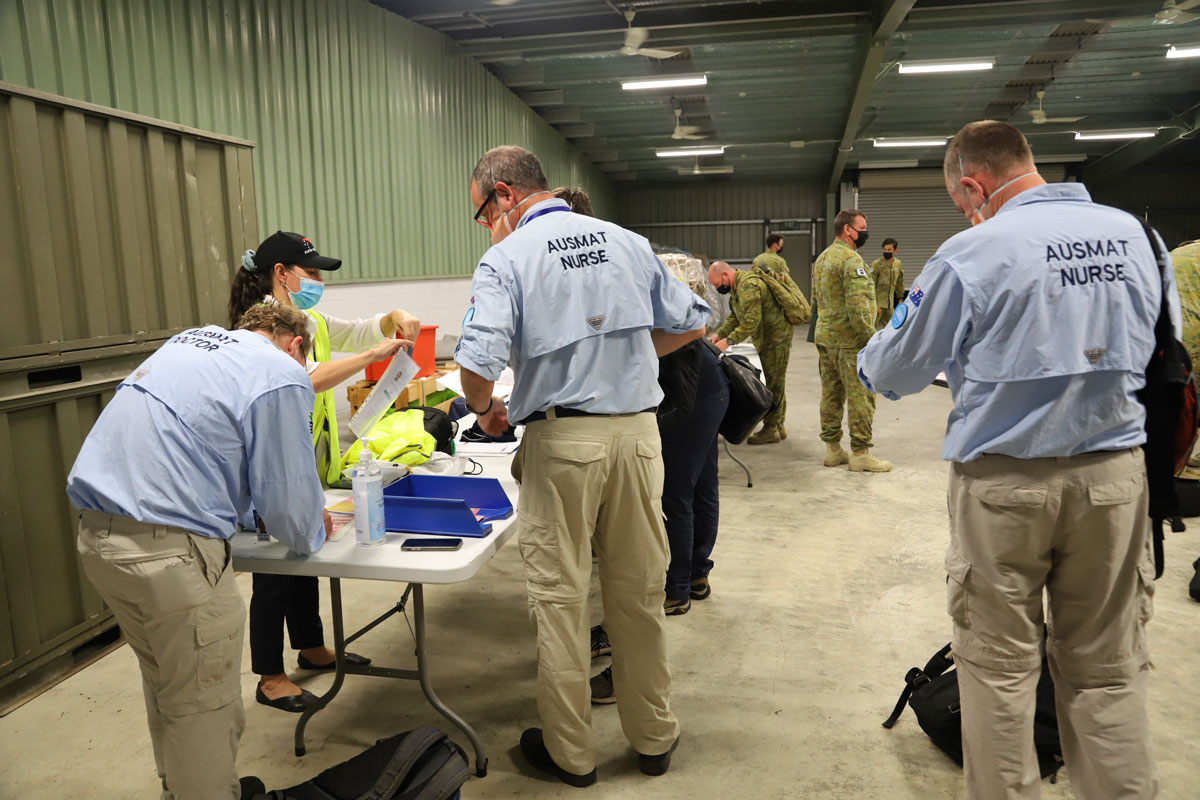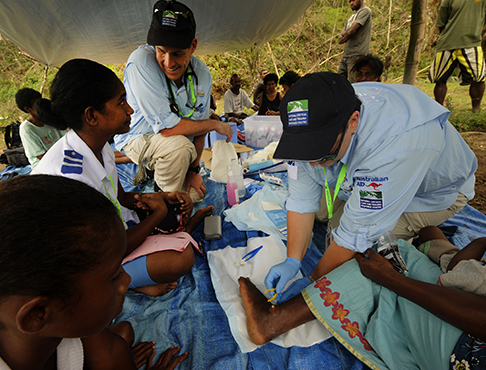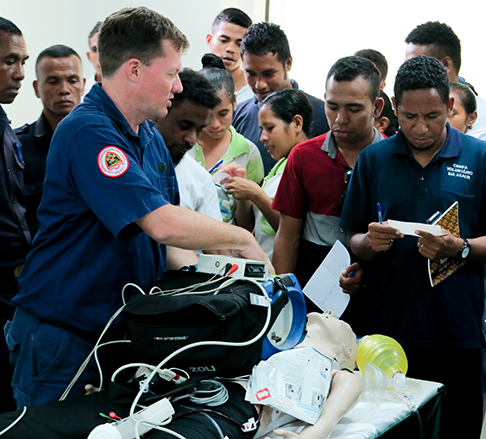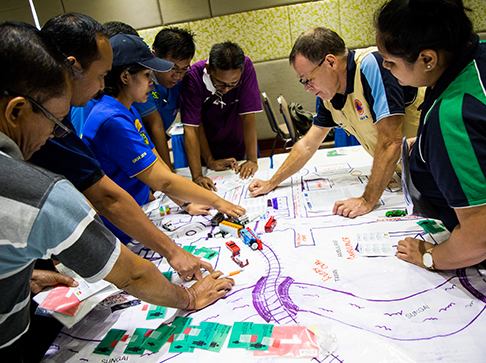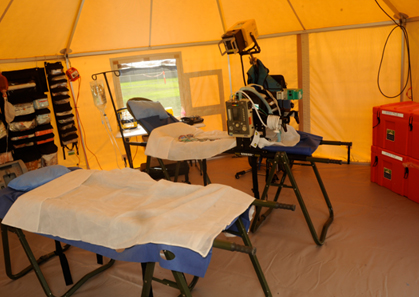Humanitarian response
Australia deploys doctors, nurses, paramedics and logisticians to provide people with life-saving medical care following disasters and health emergencies in our region.
These Australian Medical Assistance Teams (AUSMAT) are drawn from state and territory health services to deploy at short notice.
AUSMAT capability changes depending on the scale of the disaster, ranging from a small team of four people to a field hospital with 80 staff.
The Australian Government has deployed AUSMAT specialists to many humanitarian disasters, including:
- dengue fever outbreak in Samoa 2025
- Myanmar, in response to the earthquake in 2025
- Vanuatu, in response to the earthquake in 2024
- Vanuatu, in response to Tropical Cyclones Kevin and Judy in 2023
- COVID-19 outbreaks in countries including Solomon Islands, Papua New Guinea, Fiji, Timor-Leste and Kiribati from 2020-22
- severe flooding in Timor-Leste in 2021
- measles outbreak in Samoa in 2019
- MV Solomon Trader oil spill in 2019
- Thailand cave rescue in 2018
- Southern Highlands earthquake in Papua New Guinea in 2018
- Fiji, in response to Tropical Cyclone Winston in 2016.
Strengthening local health systems
Australia also helps strengthen the health systems of countries in our region by providing training through the National Critical Care and Trauma Response Centre (NCCTRC), based in Darwin. The NCCTRC provides training and mentoring throughout the Indo-Pacific for local doctors, nurses and other medical professionals, to help them respond to emergencies.
Strengthening international health systems
AUSMAT is one of few internationally deployable World Health Organization (WHO) globally-verified Emergency Medical Teams in the region. AUSMAT members are leading contributors to WHO activities to establish global standards on medical assistance during disasters.

